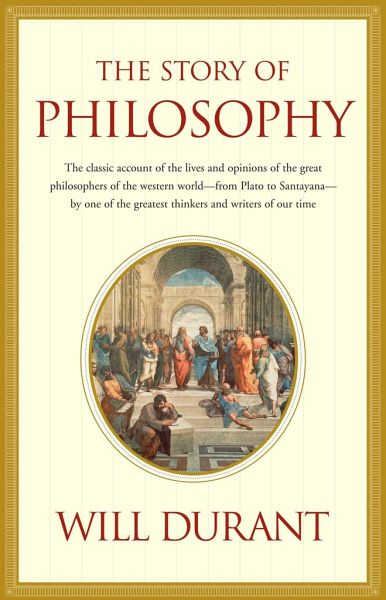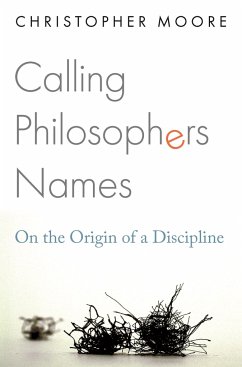
Story of Philosophy
Versandkostenfrei!
Versandfertig in über 4 Wochen
16,99 €
inkl. MwSt.
Weitere Ausgaben:

PAYBACK Punkte
8 °P sammeln!
A brilliant and concise account of the lives and ideas of the great philosophers -- Plato, Aristotle, Bacon, Spinoza, Voltaire, Kant, Schopenhauer, Spencer, Nietzsche, Bergson, Croce, Russell, Santayana, James and Dewey -- "The Story of Philosophy" is one of the great books of our time. Few write for the nonspecialist as well as Will Durant, and this book is a splendid example of his eminently readable scholarship. Durant's insight and wit never cease to dazzle; "The Story of Philosophy" is a key book for any reader who wishes to survey the history and development of philosophical ideas in the Western world.













